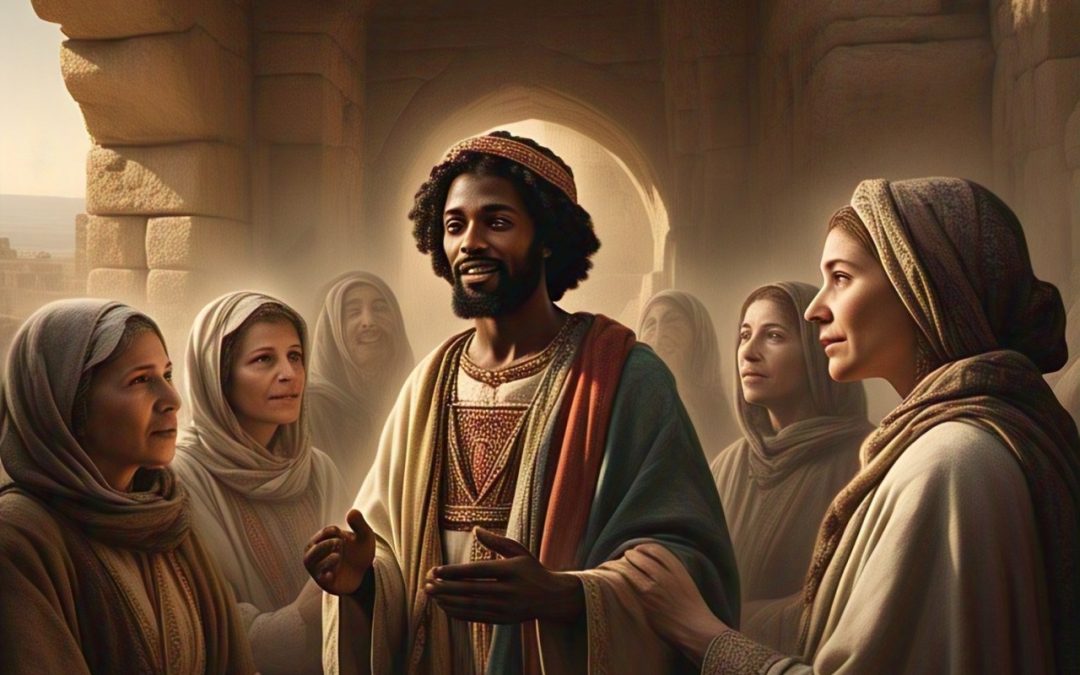
by Eron Henry | Apr 20, 2025 | Lent 2025
Historical evidence suggests Christianity’s foundational claim —”He is risen!”—emerged remarkably early in the church’s existence. Within mere years of Jesus’ crucifixion, the resurrection had already become the central tenet of Christian faith and the primary explanation for the movement’s explosive growth.
In Paul’s first letter to the Corinthians, written around 20 years after Jesus’ death, he references a creedal formula that he himself had “received” and then “passed on” to the Corinthian believers (1 Corinthians 15:3-5). Scholars widely recognize this passage as pre-Pauline, reflecting a formulation that circulated among the earliest Christians. Its structured language and non-Pauline vocabulary suggest it originated within the first few years following Jesus’ death.
This early testimony is striking not only for its chronological proximity to the events it describes but also for its content. The resurrection is presented not as a later theological development or metaphorical construct, but as a concrete historical claim with named witnesses. These witnesses included both individuals (Peter, James) and groups (“the Twelve,” “more than five hundred”), many of whom were still alive when Paul wrote.
Women’s testimony also features prominently in the Gospel accounts, a detail unlikely to be invented in a patriarchal society where female testimony carried less weight. This “criterion of embarrassment” suggests these narratives preserved authentic early traditions rather than later idealizations.
The resurrection announcement transformed a group of demoralized followers into bold proclaimers willing to face persecution and death. What explains this radical shift if not their genuine conviction that they had encountered the risen Christ? Alternative explanations—mass hallucination, deliberate fabrication, metaphorical interpretation—struggle to account for the historical data surrounding Christianity’s explosive emergence.
What makes this early testimony particularly significant is that it emerged in a Jewish context where resurrection was understood as bodily and within history, not merely spiritual or metaphorical. The first Christians were not proclaiming a comforting philosophy but testifying to what they believed was an unprecedented divine intervention that changed everything.
Prayer
Faithful God of History,
We thank You that the resurrection proclamation is no late invention but the very heartbeat of faith from its beginning. When Your Son rose from the tomb, the testimony spread quickly among those who had walked with him, spoken with him, and touched his wounds.
We are humbled to stand in this ancient stream of witness, echoing words first spoken by women at an empty tomb and by apostles in Jerusalem’s streets. Their courage to proclaim what they had seen, despite persecution and doubt, has brought the good news of resurrection to us across centuries and continents.
Forgive us when we treat Easter as merely symbolic or reduce it to springtime sentiments. The earliest believers staked their lives on this reality that You had defeated death in Jesus Christ and inaugurated a new creation.
Grant us the same conviction that transformed frightened disciples into bold witnesses. May we, like those first believers, find our courage, purpose, and hope in the risen Christ. Help us to proclaim with our lips and demonstrate with our lives that the One who was crucified now lives and reigns forever.
In all our doubts and questions, remind us that our faith is anchored not in clever myths or comforting philosophies, but in testimony preserved from those who saw, touched, and encountered the risen Lord.
Through Jesus Christ, whose resurrection has been faithfully proclaimed from generation to generation, we pray.
Amen.
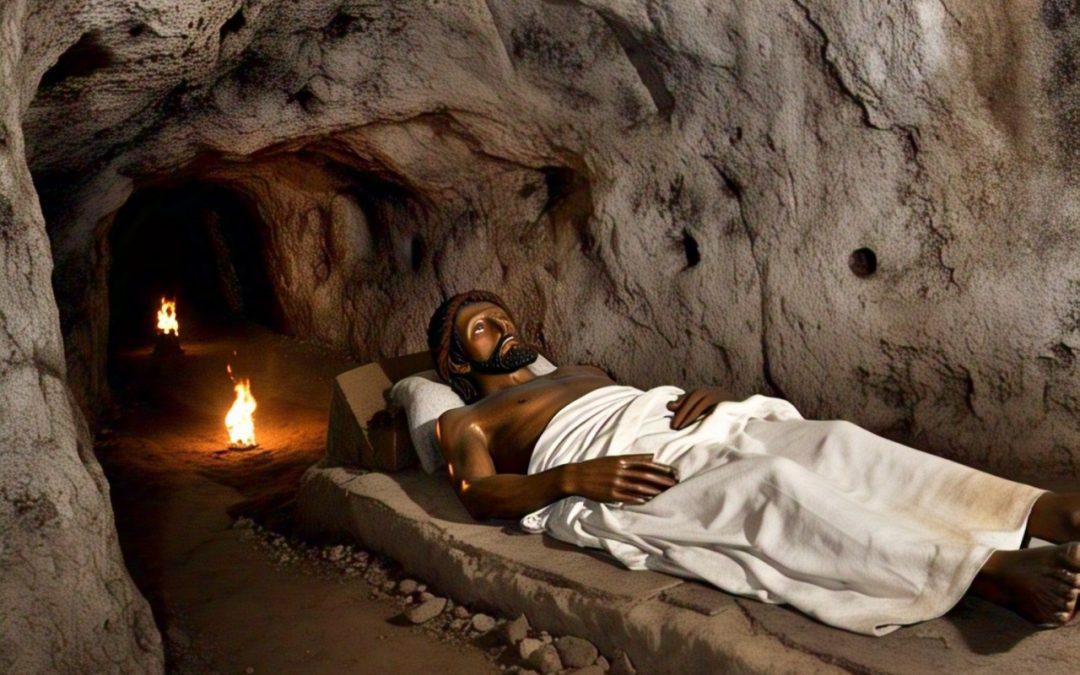
by Eron Henry | Apr 19, 2025 | Lent 2025
Holy Saturday occupies a unique place in the drama of our redemption—a pause between the anguish of Good Friday and the triumph of Resurrection morning. It is the day of divine silence, of apparent absence, of waiting in the shadow of death. Yet within this silence and stillness, mysteries unfold.
On this day, the body of Jesus lay in Joseph of Arimathea’s tomb, sealed with a stone and guarded by Roman soldiers. The One who had healed the sick, calmed storms, and raised the dead now appeared powerless, confined to the cold embrace of death. His followers scattered in fear, hiding behind locked doors, their hopes seemingly entombed with their Teacher.
Holy Saturday embodies the experience of spiritual liminality—of being caught between death and resurrection, between despair and hope, between what was and what will be. It represents those seasons in our own spiritual journey when God seems silent, when promises appear unfulfilled, when we wait in darkness uncertain if dawn will ever break.
Christian tradition speaks of this day as the time of Christ’s “harrowing of hell.” His descent into the realm of the dead to liberate the righteous souls who awaited salvation. While the Gospels themselves are silent about Jesus’ activity during these hours, this theological understanding reminds us that Christ’s redemptive work continued even in apparent absence. Death itself was being undone from within.
For the disciples, this Sabbath must have been unlike any other. The prescribed rest became an enforced stillness filled with grief, fear, and disorientation. Their minds likely replayed Jesus’ words about rising after three days, yet such promises would have seemed impossible against the finality of crucifixion and burial. Faith and doubt waged war in hearts too wounded to hope yet too committed to completely despair.
Holy Saturday teaches us the spiritual discipline of waiting, of remaining faithful when outcomes are uncertain, of trusting divine promises when evidence suggests defeat. It invites us to discover God’s continuing work even in apparent absence, to recognize that redemption often unfolds in invisible ways before becoming manifest in resurrection.
Prayer
God of the tomb and the silence, on this Holy Saturday, we pause in the shadow of death, in the space between crucifixion and resurrection, in the tension between despair and hope.
We remember how Your Son’s body lay in darkness, How his disciples hid in fear and confusion, how the women prepared spices for a burial they believed final, how death seemed to have spoken the last word.
Lord, we confess that we too know Holy Saturday experiences, seasons when You seem absent, times when promises appear broken, days when faith feels futile against unyielding reality.
In these tomb-like moments, grant us patient endurance. Remind us that even in divine silence, You are working still, that redemption continues in hidden ways, that love is never truly defeated.
As we wait between cross and empty tomb, help us to rest in the assurance of Your unfailing purposes. May we, like Jesus in death, surrender completely to Your keeping, trusting that resurrection awaits beyond our darkest hours.
Prepare our hearts for Easter joy, not by denying Saturday’s grief, but by finding You present even here, in the sacred space between death and life.
Through Christ our Lord, who sanctified even the grave.
Amen.
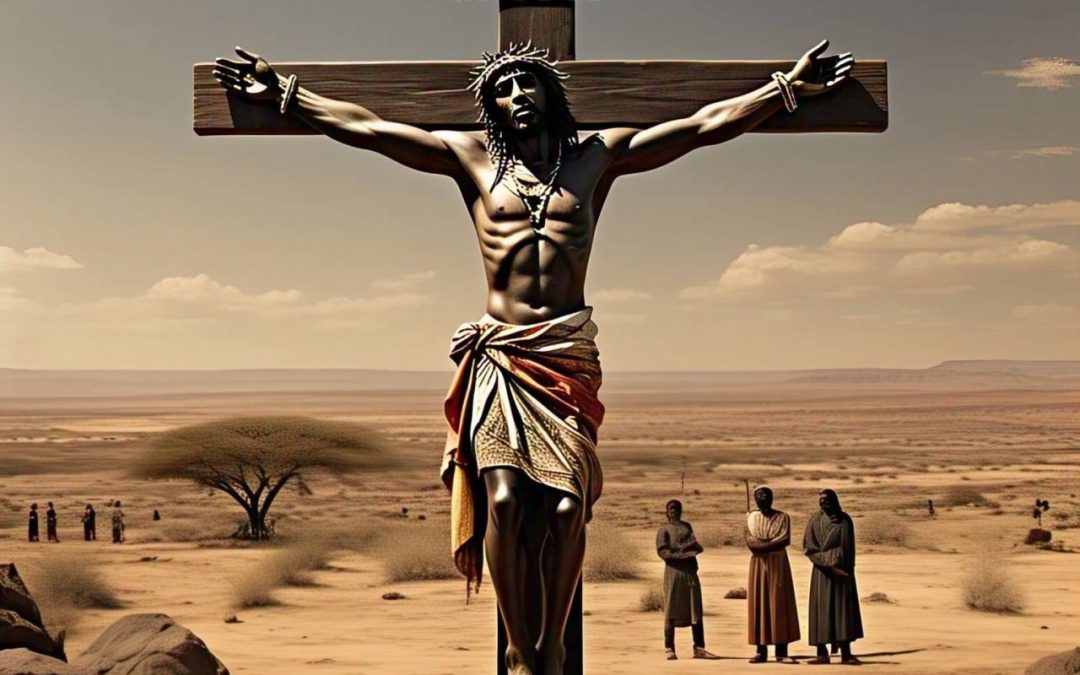
by Eron Henry | Apr 18, 2025 | Lent 2025
The cross represents the antithesis of worldly power. Roman crucifixion was designed not merely to kill but to humiliate, to demonstrate imperial might by reducing victims to objects of public shame. Yet it is precisely this instrument of domination that becomes, in the Christian narrative, the supreme revelation of divine power. As Paul writes to the Corinthians, “The message of the cross is foolishness to those who are perishing, but to us who are being saved it is the power of God” (1 Corinthians 1:18).
What kind of power manifests in crucifixion? Not coercive power that controls through force, but transformative power that operates through self-giving love. On the cross, God in Christ absorbs violence rather than perpetuating it, suffers injustice rather than inflicting it, and experiences abandonment rather than abandoning humanity. This represents power reframed as capacity for relationship rather than capacity for control.
The scandal of the cross lies in its revelation of divine vulnerability. The philosophical assumption that God must be impassible—incapable of suffering—collides with the crucified Christ. In Jesus’s cry, “My God, my God, why have You forsaken me?” (Mark 15:34), we encounter not divine detachment but radical solidarity with human experience.
Lutheran theologian Jürgen Moltmann articulates this as “the crucified God,” suggesting that the cross reveals something essential about God’s nature, not merely a temporary disguise. If, as Christians confess, Jesus fully reveals God’s character, then divine power must fundamentally include the capacity for vulnerability, suffering, and self-limitation.
This understanding of power displayed through vulnerability reshapes Christian ethics and praxis. It suggests that the church witnesses most authentically to divine power not through domination, wealth, or influence, but through solidarity with the suffering, service to the marginalized, and willingness to bear the cost of love.
For believers, the cross challenges the idolatry of self-protection. If God’s ultimate power manifests in self-giving, disciples cannot claim to follow this God while organizing their lives around self-preservation. The way of the cross invites participation in divine vulnerability—not as masochism, but as the pathway to authentic relationship and transformative presence in a broken world.
Prayer
God of astonishing power, who chose vulnerability over force, relationship over domination, and love over self-protection:
We stand before Your cross in wonder. Where we expected demonstrations of might, You gave demonstrations of mercy. Where we anticipated conquest, You offered compassion.
Forgive us for seeking power that elevates us above others, when Your power lifts others toward wholeness. Forgive our pursuit of security that insulates us from the world’s pain, when You entered that pain to transform it.
By Your Spirit, crucify in us the desire to control rather than connect, to dominate rather than serve, to preserve ourselves rather than pour ourselves out.
May we discover in the shadow of Your cross that true strength flows from surrender, that authentic power manifests in love, that Your seemingly foolish weakness Transforms more deeply than all our might.
As we follow Your cruciform way, make us vessels of Your paradoxical power, not to be served, but to serve; not to grasp, but to give; not to avoid suffering, but to transform it through the mystery of resurrection love.
Amen.
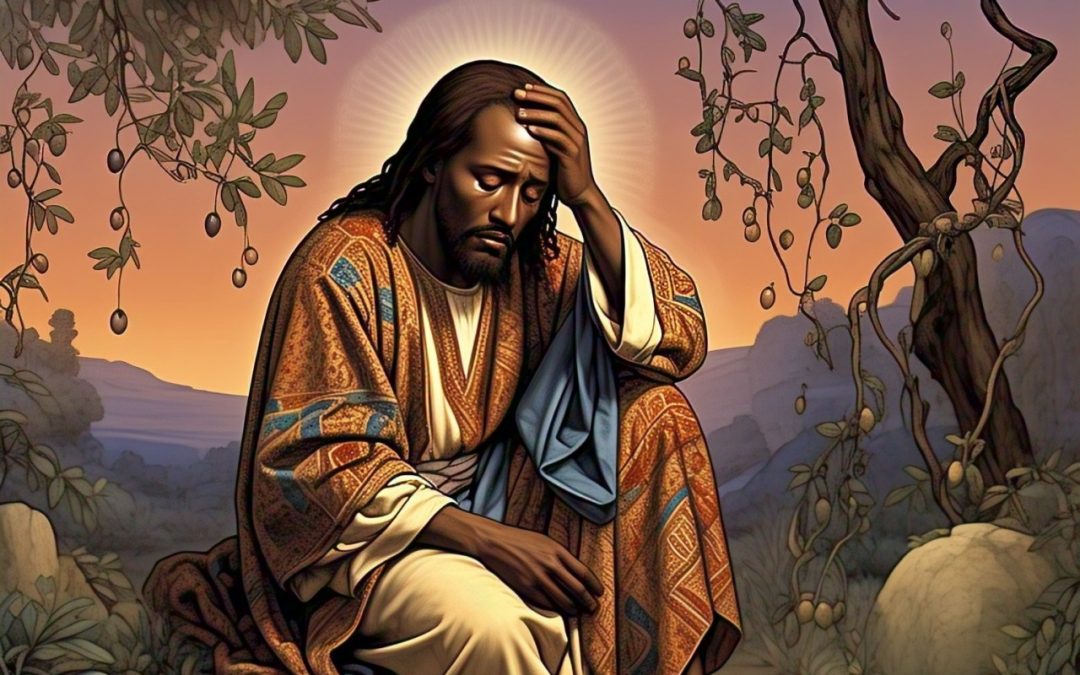
by Eron Henry | Apr 17, 2025 | Lent 2025
Maundy Thursday is a night where love and betrayal, communion and abandonment, authority and servanthood converge. The word “Maundy” derives from the Latin mandatum, meaning “commandment,” referring to Jesus’ words: “A new commandment I give to you, that you love one another: just as I have loved you, you also are to love one another” (John 13:34).
This night begins with an extraordinary act of humility. The Creator of the universe removes His outer garments, wraps a towel around His waist, and kneels before His disciples to wash their feet; a task reserved for the lowest servants. Peter’s initial resistance reflects our own reluctance to accept the radical nature of God’s self-emptying love. Yet Jesus insists: “If I do not wash you, you have no share with me.” In this reversal of human hierarchy, we witness divine love expressing itself not through domination but through service.
At the table, Jesus transforms the Passover meal into something altogether new. Taking bread and wine—ordinary elements of sustenance—He imbues them with extraordinary significance: “This is my body… This is my blood.” With these words, He establishes a memorial that will transcend time and culture, inviting believers across millennia to participate in His sacrifice. The meal that commemorated Israel’s deliverance from Egyptian bondage now points toward humanity’s deliverance from sin and death.
As the night deepens, Jesus leads His disciples to Gethsemane. Here, in the quiet darkness of an olive grove, we witness the full humanity of Christ. “My soul is very sorrowful, even to death,” He confesses to His closest friends. Three times He prays for the cup of suffering to pass from Him; three times He concludes with perfect submission: “Nevertheless, not my will, but yours, be done.” The struggle is real, yet His surrender is complete.
The night culminates in betrayal. With a kiss—a sign of affection twisted into treachery—Judas identifies Jesus to the arresting party. The disciples, despite their earlier protestations of loyalty, scatter into the darkness. The One who had just washed their feet and broken bread with them now stands alone, abandoned by all but the Father.
Maundy Thursday invites us to contemplate the cost of love that gives itself completely, the beauty of a God who serves rather than demands service, and the mystery of communion that transcends betrayal. It challenges us to examine whether we, like Peter, resist Christ’s humble love, or like Judas, betray it for temporary gain, or like the other disciples, abandon our commitments when they become costly.
Prayer
Lord,
On this holy night, we remember how You knelt before Your disciples, washing their travel-worn feet with Your holy hands. Forgive our pride that resists Your humble service and our reluctance to follow Your example of loving servanthood.
We recall how You took bread and wine, transforming them into vessels of grace and remembrance. Thank You for inviting us to Your table, where we encounter Your presence and receive Your life. May we never approach this sacred mystery with casual indifference.
We contemplate Your agonizing prayer in Gethsemane, where Your human will surrendered completely to the divine purpose. In our own moments of suffering and resistance, teach us to pray as You prayed: “Not my will, but Yours be done.”
We acknowledge the betrayals that pierced Your heart on this night—Judas with his kiss, Peter with his denials, the others with their flight. Forgive us for the times we too have betrayed Your love through our actions, words, or silence.
Grant us grace to fulfill Your mandatum novum—Your new commandment—to love one another as You have loved us. May our love be neither sentimental nor selective, but sacrificial and inclusive, reflecting the love You demonstrated at the basin and on the cross.
As the shadows of this day deepen toward Good Friday, keep us watchful and faithful, ready to follow You even to Calvary.
In Your name we pray.
Amen.
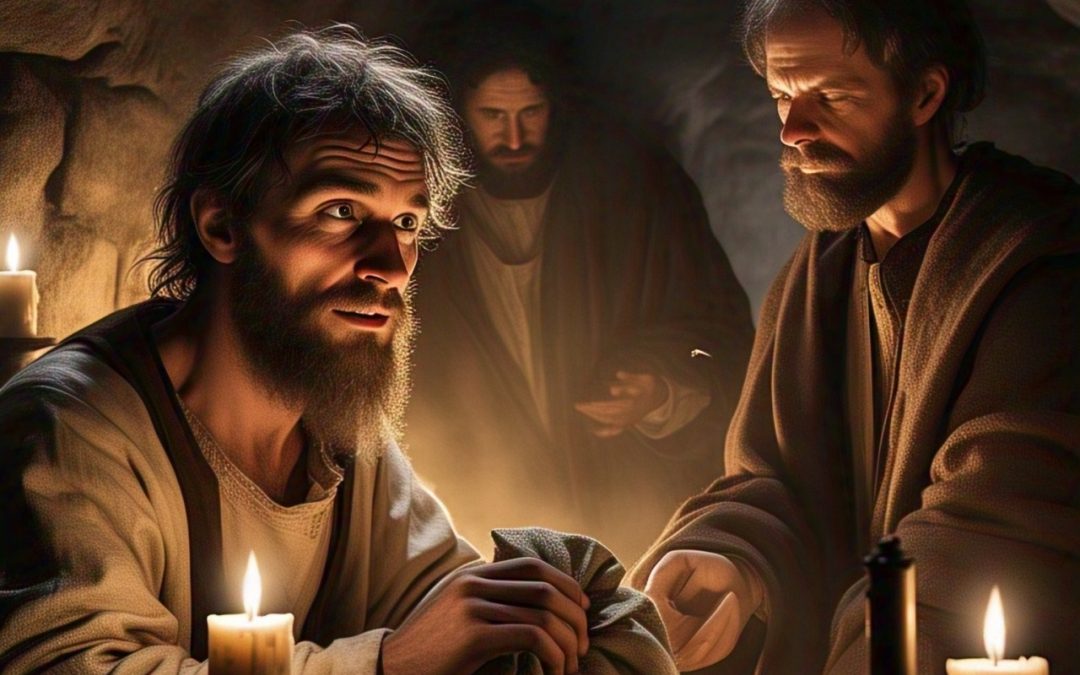
by Eron Henry | Apr 16, 2025 | Lent 2025
Holy Wednesday is a somber milestone in the Passion narrative—a day marked not by grand public teachings or miraculous displays, but by hidden betrayal and sinister plotting. While Jesus continues His ministry, forces of darkness gather in the shadows, revealing the depths of human duplicity and the staggering cost of divine love.
The Gospel accounts of this day focus primarily on Judas Iscariot, who undertakes perhaps the most infamous betrayal in human history. Having walked with Jesus for three years—witnessing His miracles, hearing His teachings, and sharing in His intimate moments—Judas now approaches the religious authorities with a chilling proposition: “What will you give me if I deliver him over to you?” The agreed price—thirty pieces of silver—echoes the ancient valuation for a slave’s life (Exodus 21:32), a paltry sum for betraying the Son of God.
The tragedy of Holy Wednesday lies not merely in the act of betrayal but in its intimacy. Judas was not an outsider or declared enemy, but one who broke bread with Jesus, one who had been trusted with the group’s finances, one who had been called “friend.” His betrayal reminds us that sometimes the deepest wounds come from those closest to us.
Yet amid this darkness, we must recognize God’s sovereign purpose. What appears as the triumph of evil is paradoxically the pathway to humanity’s redemption. The very conspiracy that seeks to eliminate Jesus becomes the means by which salvation is accomplished. The silver that changes hands as blood money will soon purchase a potter’s field, fulfilling ancient prophecy (Zechariah 11:12-13).
Holy Wednesday challenges us to examine our own hearts. Like Judas, we too can harbor mixed motives, disappointments with God’s plans, or secret sins that gradually distance us from Christ. What begins as small compromises can culminate in betrayal if left unaddressed. Yet unlike Judas, we are offered the opportunity for genuine repentance and restoration.
Prayer
Lord,
On this Holy Wednesday, we pause to remember how You were sold for thirty pieces of silver by one who called You friend. Your heart knew the pain of betrayal even as You continued the journey toward the cross.
Search our hearts today. Reveal to us the ways we too have betrayed You—through our silence when we should speak, our compromise when we should stand firm, our denial when we should acknowledge You before others.
Guard us from the self-deception that allowed Judas to rationalize his actions. Show us our true motivations and purify our hearts from all that is not of You.
We confess that like Judas, we have valued lesser things above You—comfort, security, reputation, wealth. Forgive us for the times we have traded Your presence for worldly gain.
In a world of betrayal and broken trust, make us people of integrity and faithfulness. By Your Spirit, empower us to remain loyal to You even when the path is difficult or unpopular.
May we never forget the cost of our redemption, purchased not with silver or gold, but with Your precious blood.
In the name of Christ, who endured betrayal to secure our salvation.
Amen.
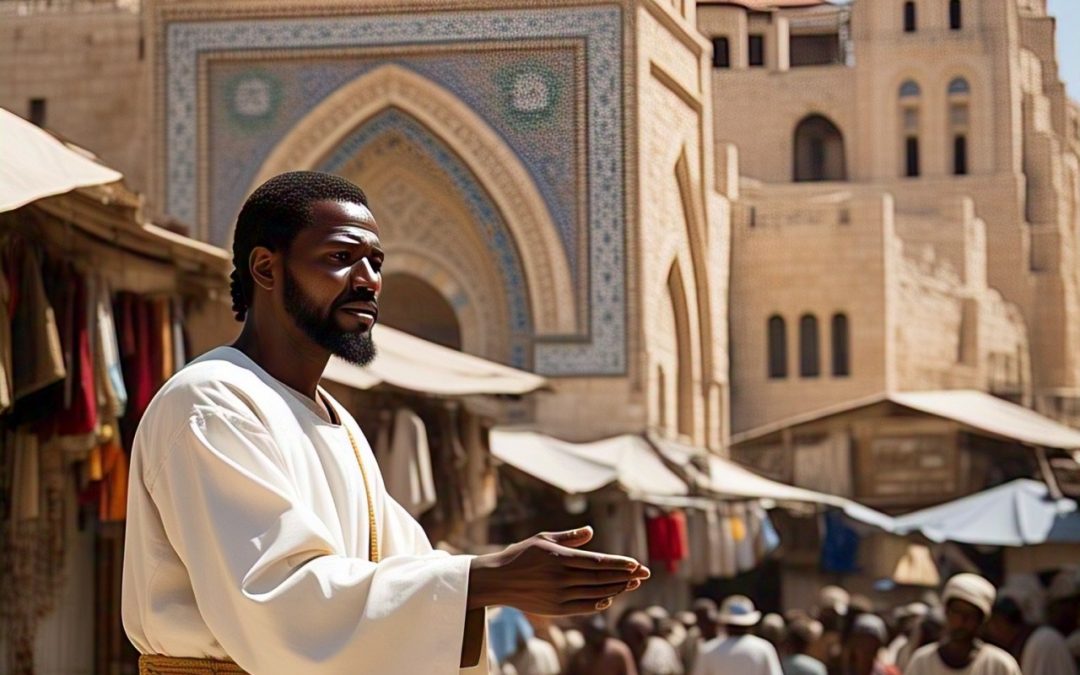
by Eron Henry | Apr 15, 2025 | Lent 2025
After cleansing the Temple the previous day, Jesus returns to Jerusalem to engage in some of His most profound and challenging teachings. This day reveals a Messiah who confronts religious hypocrisy and articulates divine truth with unwavering authority.
In the Temple courts, Jesus faces a barrage of questions designed to trap Him. The religious and political powers conspire to undermine His growing influence, yet each encounter reveals their spiritual bankruptcy and highlights Christ’s divine wisdom. When asked about paying taxes to Caesar, He deftly avoids their trap: “Give to Caesar what is Caesar’s, and to God what is God’s.” When the Sadducees attempt to discredit the resurrection with a convoluted scenario, Jesus exposes their misunderstanding of both scripture and God’s power.
The parables Jesus shares this day are particularly pointed. The Parable of the Tenants directly confronts the religious leaders, portraying them as corrupt stewards who have violated their sacred trust. The Parable of the Wedding Banquet warns that many who seem invited to God’s kingdom will ultimately reject it, while unexpected others will fill the banquet hall.
Perhaps most sobering is the Olivet Discourse, where Jesus foretells both the destruction of the Temple and the end of the age. He reminds His followers to remain vigilant and faithful, for no one knows the day or hour of His return.
Holy Tuesday challenges us to examine whether we truly recognize divine authority or merely pay it lip service. It asks whether we are like the religious leaders who knew scripture but missed its Author standing before them, or like those who humbly received Jesus’ words as truth.
Prayer
Lord of Truth and Authority,
On this Holy Tuesday, we remember how You stood in the Temple courts, speaking truth that confounded the wise and powerful of this world. Your words cut through pretense and illuminated hearts.
Examine us today as You examined the religious leaders then. Where we have embraced appearances over substance, correct us. Where we have twisted Your word to suit our desires, straighten our thinking.
Grant us discernment to recognize Your voice amidst the competing claims of our age. Help us to be not merely hearers of Your word, but faithful doers who build our lives on the solid foundation of Your truth.
May we live in constant readiness for Your return, with lamps trimmed and hearts prepared. Keep us from growing complacent or distracted by the concerns of this world.
We submit to Your authority, Christ Jesus, knowing that in Your wisdom alone can we find the path to life abundant and eternal.
Amen.







Recent Comments